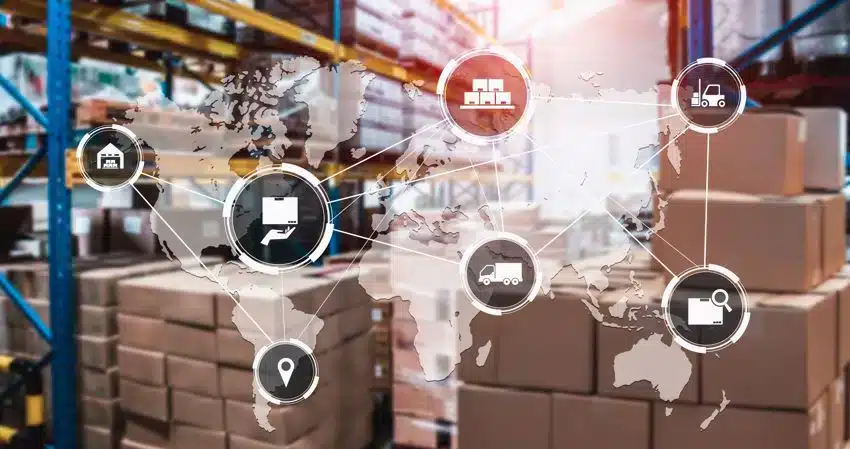What goes into your transportation budget? Where's all your spending going? Alongside freight contracts, small parcel contracts are likely taking up a large amount of your overall logistics allocation.
The bad news is that there is often waste built into these contracts, but the good news is that with the right combination of expertise and technology, you can detect and eliminate those overages. Companies may not realize just how much extra value they can extract from their small parcel contracts until they take a closer look.
The process of contract negotiation to secure favorable conditions can take some of the strain off your bottom line. In an era when supply chain breakdowns are relatively common and parcel shipping rates are always on the rise, this extra value is a welcome boost to any business.
Fees and rate increases can harm your profitability, but with the right approach, you can detect and counter them.
Why Focus on Renegotiating Parcel Contracts?
The main reason to engage in parcel carrier contract negotiation is the simplest: because there's money to be saved, and many times you can achieve double-digit savings! Guarding your profit margin means taking every opportunity to run your business more efficiently.
The terms behind contracts change drastically, and frequently. From year to year, parcel carriers like UPS and FedEx raise their rates, sometimes also adding extra surcharges — for instance, oversized load charges, on-demand charges, peak season charges and many more.
Carriers are adept negotiators, and can easily slip surprising added costs into agreements. Contracts can run 50 or more pages in length, making it easy to miss surcharges without extra assistance. You don't have to simply accept all the changes. There is room to fight back through contract negotiation, but without help, your business is at a disadvantage.
Not only do you have to struggle against companies that have put extensive time and effort into maximizing their value via extra contract charges, but you also have to divide your time between these negotiations and your everyday work. This is one area where a partner like Zero Down Supply Chain Solutions can prove indispensable, evening the odds with the carriers by using technology and expertise to search long contract documents for hidden charges and savings opportunities.
By working with multiple carriers and fostering competition, you can lock in favorable rates through negotiation. As macro market conditions change, certain events signal good opportunities for discounts, and you can stay on guard for these events. The present market represents a valuable moment to negotiate, and events like the potential strike that led to a new UPS contract also put carriers in a vulnerable position where you can secure favorable rates — for the first time in four years, carriers have come to the table to negotiate.
Negotiation isn't a one-time event. Over the years, you can respond to changes in fees and rates with your own proposals. In some cases, carriers use contract language to limit the time period of incentives. Managing these timelines is important for maintaining low rates. The value is there to be had, and it can offset budgetary hits and worries that come from other issues such as global supply chain slowdowns at ports or factories.
Learn how contract negotiation can offset cost concerns caused by inflation and more.
How Does Parcel Contract Negotiation Work Today?
Data is the lifeblood of logistics operations today. Shipping invoices and real-time delivery data create a rich body of information that can tell your organization more about your parcel carrier partners than you ever knew in the past.
That shipping data isn't just useful for updating your internal projections and communicating with your customers. It can also become the basis for a parcel contract negotiation process. If you have the technology to break down your information, you can come to the bargaining table with all the facts, which will help you get favorable terms from all your parcel carriers.
The types of price comparisons and other metrics that are available today are unprecedented. Take the total landed cost comparison from Zero Down Supply Chain Solutions and our proprietary spend management system FreightOptics, for instance. This unified view allows you to take the guesswork out of your parcel contact negotiations with each of your key carriers. Results on every shipment are visible, down to the penny.
Whether you're dealing with national or regional carriers, support from the Zero Down Supply Chain Solutions team allows you to compare multiple options and proposals to find the best deal for you. When you can demonstrate exactly what your shipping costs would be when working under certain terms or with alternative carriers, you'll find it easier to extract savings.
This technology-driven total landed cost comparison is so revolutionary because it uses an automated service to rerate every shipment, finding hidden expenses and potential blind spots. Both your current contracts and any proposals on the table will be analyzed, helping you account for every penny and save wherever possible.
The human element of parcel contract negotiation goes alongside the technology side, making effective use of the data flowing from analytics tools. When you have experts on your side, you gain more than data analysis. You can receive assistance through every step of soliciting proposals, from initial offers to after-the-fact monitoring.
See how optimizing parcel contracts fits into our overall strategic process.
How Do You Optimize the Parcel Contract Negotiation Process?
True parcel contract cost optimization is a multi-step process. This is the kind of service provided by the experts at Zero Down Supply Chain Solutions with our parcel AAAAIM Optimization process. In this kind of collaboration, the final decisions about which parcel carriers to work with and contracts to accept are still yours, but there's valuable help along the way.
What does this kind of parcel negotiation look like? It begins with a review of your current parcel contracts. From there, we formulate the strategy for a successful contract negotiation process. In collaboration with the transportation experts, you can analyze initial bid proposals and make optimal responses to secure you the ideal rate. By benchmarking your rates against agreements that reflect similar characteristics and revenue, grants unprecedented insight into the discounts your organization qualifies for due to our ability to compare your data to other like sized shipping volumes.
How can you be sure that an acceptable proposal will actually turn into a good ongoing contract, honored by the parcel carrier? The key is ongoing monitoring. Without technology like FreightOptics assessing shipments and invoices, it's impossible to determine whether a small parcel carrier is meeting its obligations under the newly negotiated rates.
Corresponding with carriers to get ideal rates can take time and focus from your internal team, which may encourage you to settle for less-than-optimal rates. This is one reason why it's so impactful to have the Zero Down Supply Chain Solutions team on your side. As part of our Optimization service, our staff fully supports the bid and manages the project. This includes document creation and providing verbiage for negotiation correspondence that allow you to maintain focus on operating your core business.
Zero Down Supply Chain Solutions applies a bespoke six-step process known as AAAAIM:
- Assessment: A review of your current rates, to detect hidden value opportunities.
- Alignment: The setting of baseline rates and parcel negotiation strategies.
- Advisement: Sharing of initial bid data and the verbiage for parcel contract negotiations, followed by advice at every step of the proposal process.
- Agreement: Signing the contract once you've received an acceptable bid.
- Implementation: Monitoring of shipments and invoice data to ensure the new contract is being honored.
- Maintenance: A series of quarterly updates and periodic assessments to see if there are new opportunities to negotiate based on carriers' changes.
This process can bring savings — sometimes 10-30%+ — and often doesn't even require you to change your carrier of choice to lock in optimal rates, keeping your carrier relationship intact. With tech-savvy industry experts on your side, you don't have to over-exert your staff to safeguard your bottom line.
See how Transportation Spend Management represents a comprehensive approach to parcel contract negotiations that can improve your bottom line by 10% to 30% in cost savings.
Time to Start Negotiating Your Parcel Contracts
There's no need to wait to inspect and start thinking about your parcel contracts. Present market conditions are favorable to businesses that want to negotiate carrier contracts — and now is the ideal moment to act, with the annual general rate increase (GRI) due to occur in January.
Getting started on this process soon can help you lock in favorable rates going forward. Every month under your new, optimized contract terms will represent savings compared to existing agreements.
Optimization is just one of the helpful processes aimed at saving you money on parcel shipments. If it's been more than 12 months since you performed a small parcel audit, you are leaving money on the table because hidden savings opportunities are lurking amid any given carrier agreement. For example, you may be eligible for significant refunds due to rate errors, service level failures, mistakes in surcharges, missing discounts and more.
You and your employees are busy focusing on your core business. At the same time, there may be opportunities to save money on an ongoing basis, waiting in your transportation contracts and invoices. You can reconcile these two facts by teaming up with experts and taking a fine-toothed comb to each parcel carrier agreement, turning up unexpected value by creating a budget through parcel bid negotiations.
Contact Zero Down Supply Chain Solutions to see how much you could be saving and get started optimizing your parcel contract spend.




